
Politics
18:13, 23-Aug-2017
US asks if Iran military sites to be checked under nuclear deal
CGTN
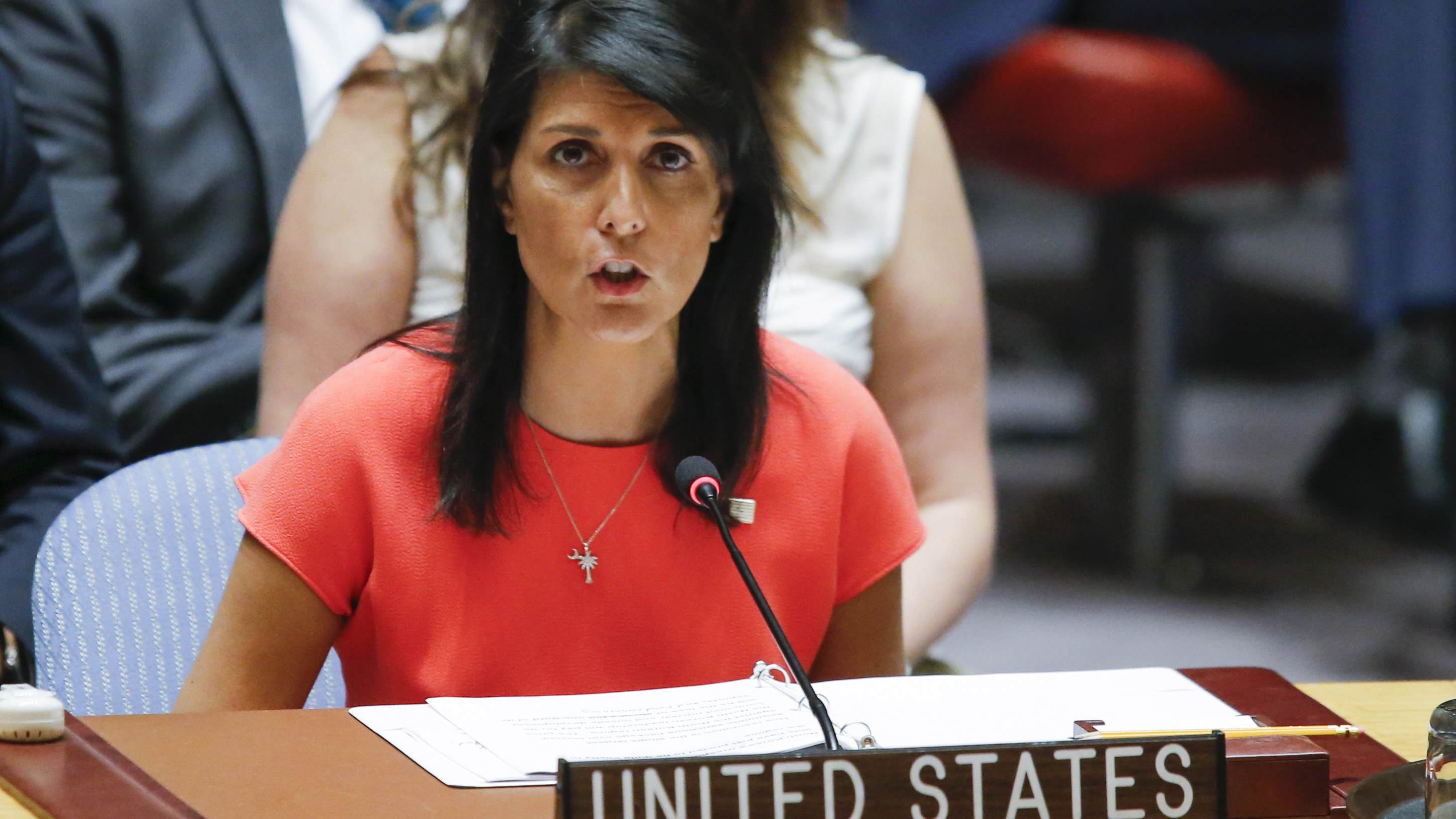
The United States wants to know if the United Nations atomic watchdog plans to inspect Iranian military sites to verify Tehran's compliance with a 2015 nuclear deal, the US ambassador to the United Nations, Nikki Haley, said on Tuesday.
Haley will meet with International Atomic Energy Agency (IAEA) officials in Vienna on Wednesday for what she described as a fact-finding mission, which is part of President Donald Trump's review of the deal Iran made with world powers to curb its nuclear program in return for the lifting of most sanctions.
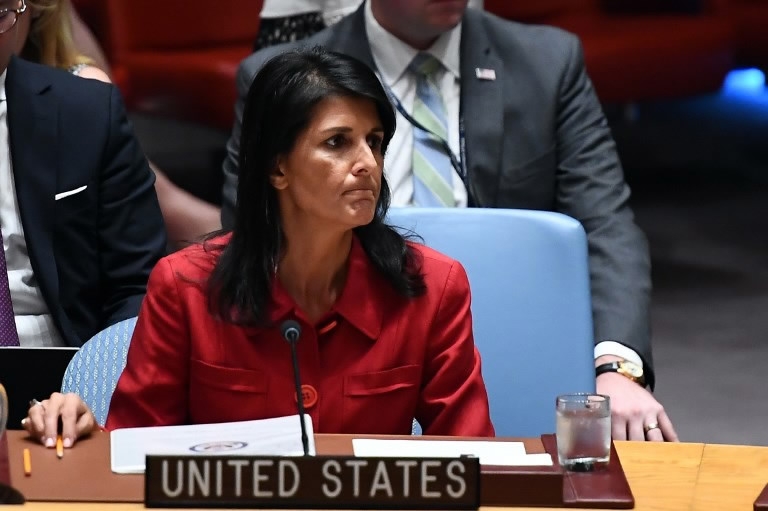
US Ambassador to the United Nations Nikki Haley listens during a Security Council meeting on North Korea at the UN headquarters in New York on July 5, 2017. /AFP Photo
US Ambassador to the United Nations Nikki Haley listens during a Security Council meeting on North Korea at the UN headquarters in New York on July 5, 2017. /AFP Photo
"If you look ... at past Iranian behavior, what you've seen is there have been covert actions at military sites, at universities, things like that," Haley, a member of Trump's cabinet, told Reuters in an interview.
"There were already issues in those locations, so are they including that in what they look at to make sure that those issues no longer remain?" she said. "They have the authority to look at military sites now. They have the authority to look at any suspicious sites now, it's just are they doing it?"
She said she was traveling to Vienna to ask questions, not to push the IAEA to do anything.
A spokesman for the IAEA said it had no immediate comment and that there were no public statements planned on the meeting.
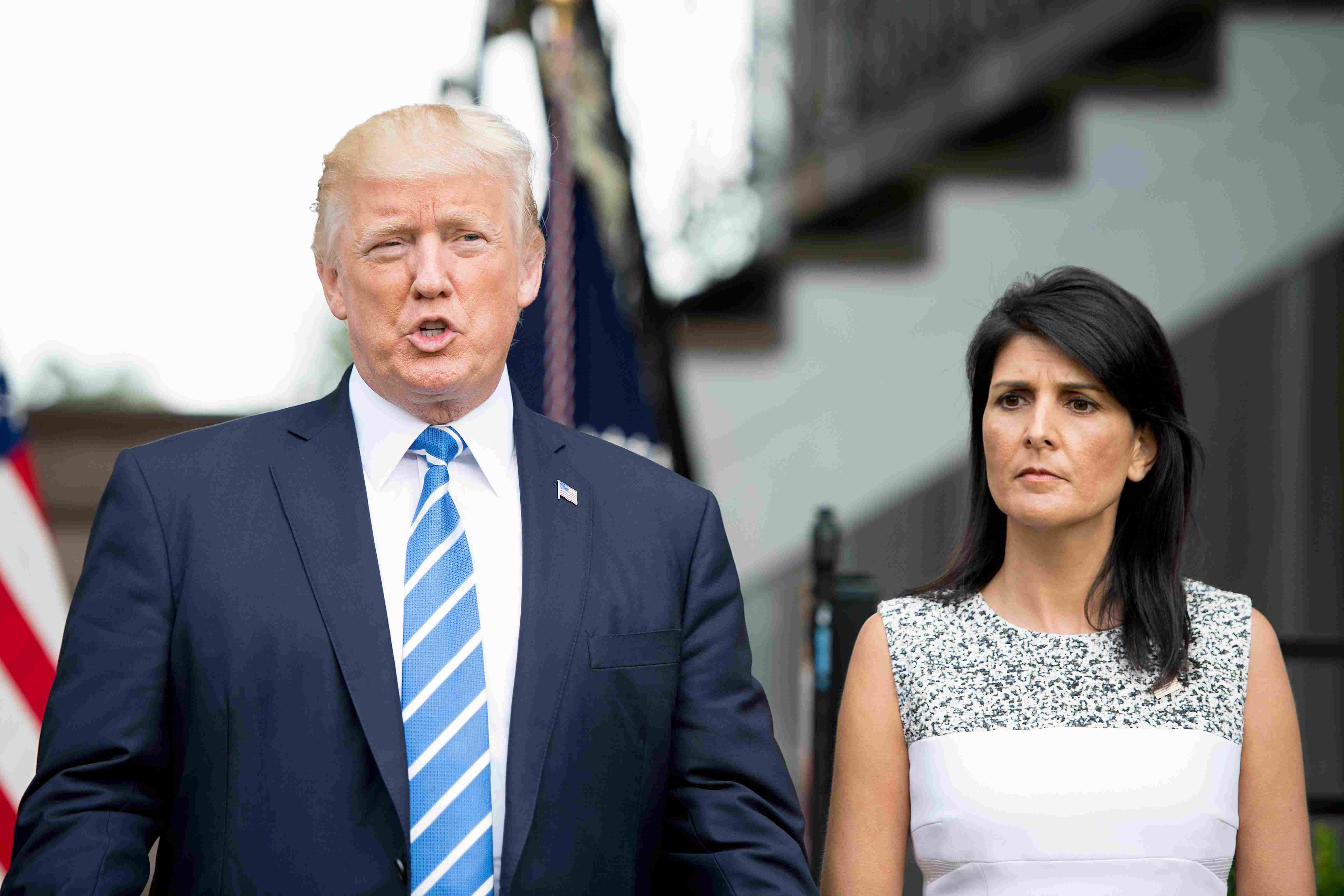
US President Donald Trump (L) speaks to the press with Ambassador to the United Nations Nikki Haley (R) on August 11, 2017, at Trump National Golf Club in Bedminster, New Jersey. /AFP Photo
US President Donald Trump (L) speaks to the press with Ambassador to the United Nations Nikki Haley (R) on August 11, 2017, at Trump National Golf Club in Bedminster, New Jersey. /AFP Photo
Iran's top authorities have flatly rejected giving international inspectors access to their military sites, and Iranian officials have told Reuters that any such move would trigger harsh consequences.
"Why would they say that if they had nothing to hide? Why wouldn't they let the IAEA go there?" Haley said.
Iran's atomic chief was quoted by state media as saying on Tuesday that Iran could resume production of highly enriched uranium within five days if the nuclear deal was revoked.
In April, Trump ordered a review of whether a suspension of sanctions on Iran related to the nuclear deal - negotiated under President Barack Obama - was in the US national security interest. He has called it "the worst deal ever negotiated."
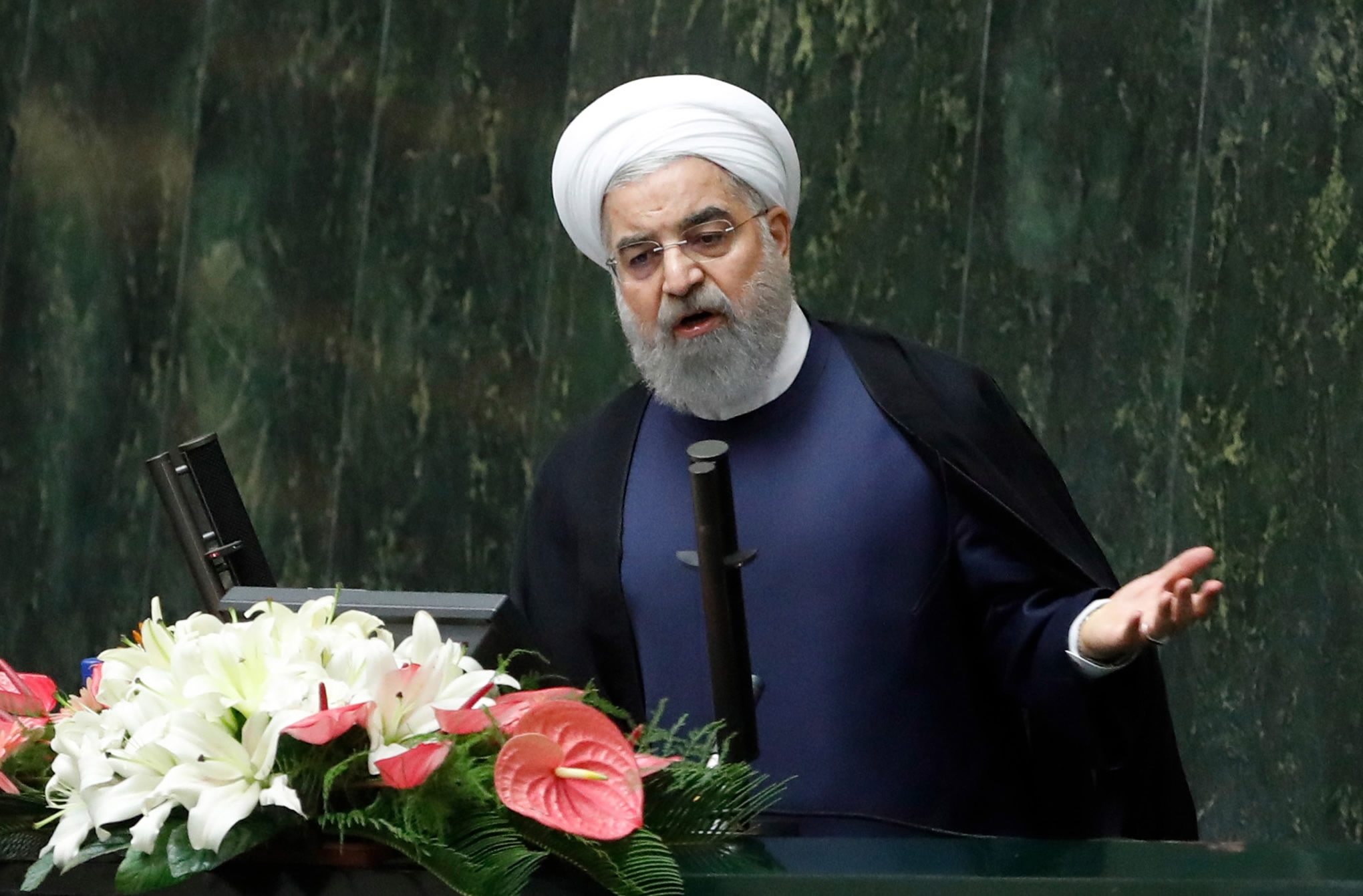
Iranian President Hassan Rouhani (C) delivers a speach to the parliament in Tehran on August 20, 2017. /AFP Photo
Iranian President Hassan Rouhani (C) delivers a speach to the parliament in Tehran on August 20, 2017. /AFP Photo
Iranian President Hassan Rouhani warned last week that Iran could abandon the nuclear agreement "within hours" if the US imposes any more new sanctions.
Most UN and Western sanctions were lifted 18 months ago under the nuclear deal. Iran is still subject to a UN arms embargo and other restrictions, which are not technically part of the deal.
The IAEA polices restrictions the deal placed on Iran's nuclear activities and reports quarterly.
Under US law, the State Department must notify Congress every 90 days of Iran's compliance with the nuclear deal. The next deadline is October, and Trump has said he thinks by then the US will declare Iran to be non-compliant.
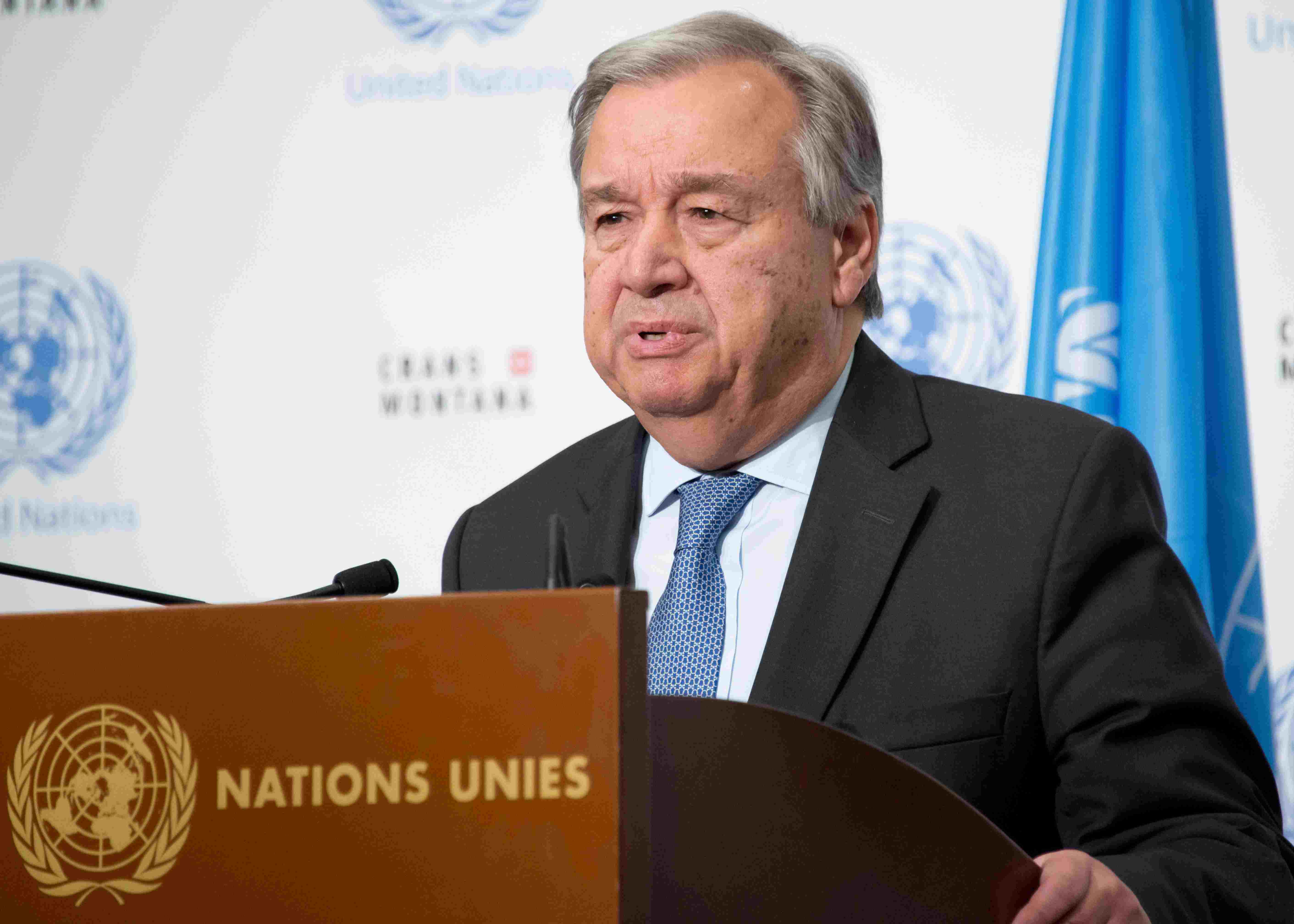
UN Secretary-General Antonio Guterres addresses a press conference closing peace talks in the Swiss resort of Crans-Montana on July 7, 2017. /AFP Photo
UN Secretary-General Antonio Guterres addresses a press conference closing peace talks in the Swiss resort of Crans-Montana on July 7, 2017. /AFP Photo
UN Secretary-General Antonio Guterres believes the Iran nuclear deal is "one of the most important diplomatic achievements in our search for peace and stability," UN spokesman Stephane Dujarric said on Tuesday.
"Everyone involved needs to do its utmost to protect and support that agreement," Dujarric told reporters.
Source(s): Reuters

SITEMAP
Copyright © 2018 CGTN. Beijing ICP prepared NO.16065310-3
Copyright © 2018 CGTN. Beijing ICP prepared NO.16065310-3